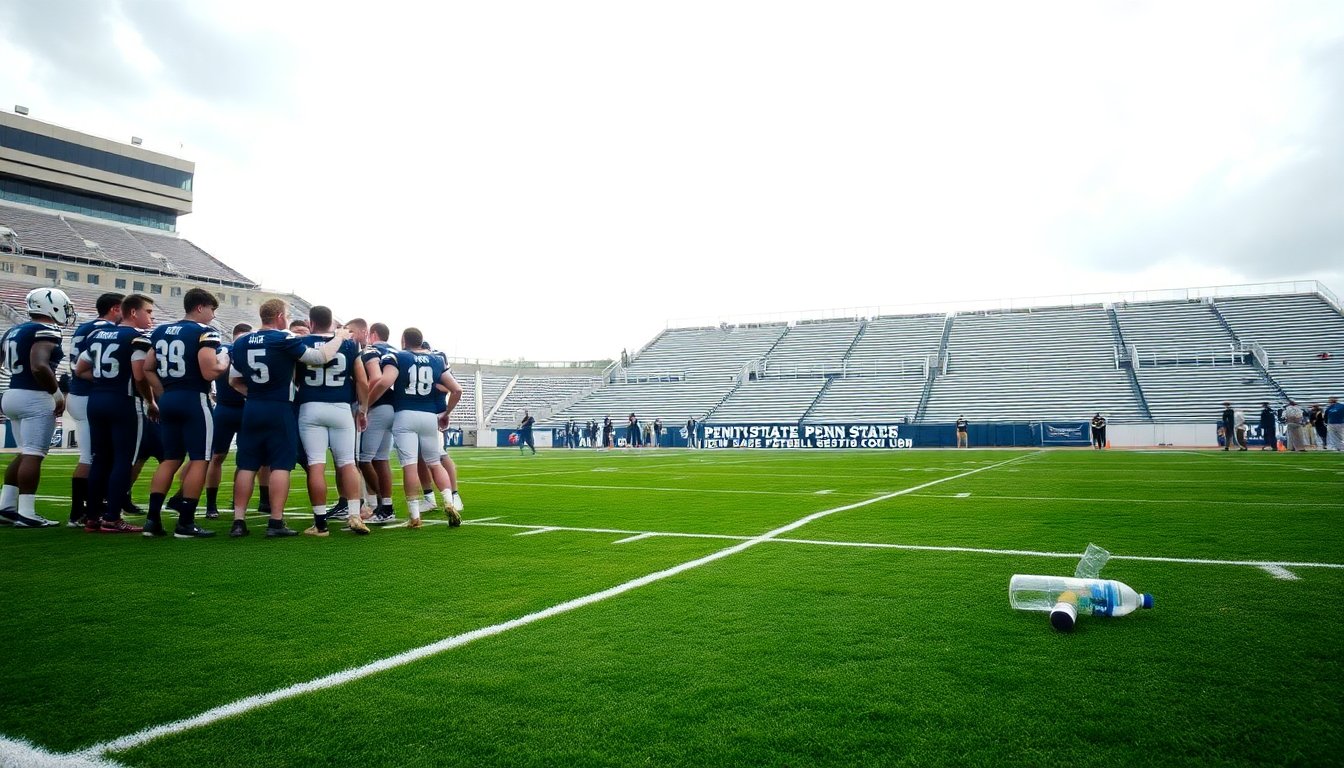Table of Contents
The Penn State Nittany Lions began the season with high expectations, ranked second nationally. Fans and players envisioned a path to the national championship. However, the team’s journey took an unexpected turn, as they faced a series of defeats that shocked the football community.
After a promising start, the Nittany Lions suffered three consecutive losses, including two surprising upsets that undermined the team’s morale. As the season progressed, it became clear that the coaching staff needed to make difficult decisions to align their ambitions with the team’s reality.
Unexpected losses lead to a coaching change
In response to a disappointing season, Penn State’s administration made the decision to part ways with head coach James Franklin. This change was not solely a reaction to recent losses but reflected broader implications for the program’s future. Once poised for greatness, the Nittany Lions now faced a reevaluation of their leadership.
As the season unfolded, fans and analysts expressed concerns regarding the team’s strategies and execution. The inability to secure victories against perceived inferior opponents raised questions about the coaching approach and player morale. Consequently, the Nittany Lions grappled with the fallout from these disappointing results, leading to the call for new leadership.
Factors contributing to the coaching decision
Several factors influenced the decision to dismiss Franklin. First, the team’s underperformance was glaring. The Nittany Lions, initially expected to dominate, instead faced games characterized by miscommunication and missed opportunities.
Additionally, mounting pressure from the fan base and alumni was evident. As hopes for a successful season dwindled, dissatisfaction grew louder. The once-strong support for the program began to wane, as fans voiced frustrations on social media and at games. This pressure likely impacted decision-makers at Penn State, who recognized the need for change to restore competitiveness.
The road ahead for Penn State
Looking ahead, the Nittany Lions face a significant challenge in rebuilding their program. The departure of a head coach often signifies a transitional period, which can be both exciting and tumultuous. The key question is who will assume this role and how they will manage the accompanying expectations.
In the coming weeks, the university will initiate a search for a new head coach, one capable of reigniting the passion that once fueled the Nittany Lions’ success. This search will focus not only on finding a skilled strategist but also on identifying someone who can connect with players and inspire them to reach their potential. The new leadership must ensure the team recovers from past setbacks and refocuses on future championships.
Rebuilding and redefining the program
The process of rebuilding Penn State’s football culture will require a comprehensive strategy. The new coach will need to assess the current roster and pinpoint areas for improvement. This involves tactical adjustments and instilling a renewed sense of determination and teamwork among players.
As the Nittany Lions prepare for the future, the lessons learned from this challenging season will be invaluable. Embracing change and fostering resilience will be crucial in their journey to reclaim their status as a powerhouse in college football. With the right leadership and a commitment to growth, Penn State can emerge stronger and more competitive than ever.


